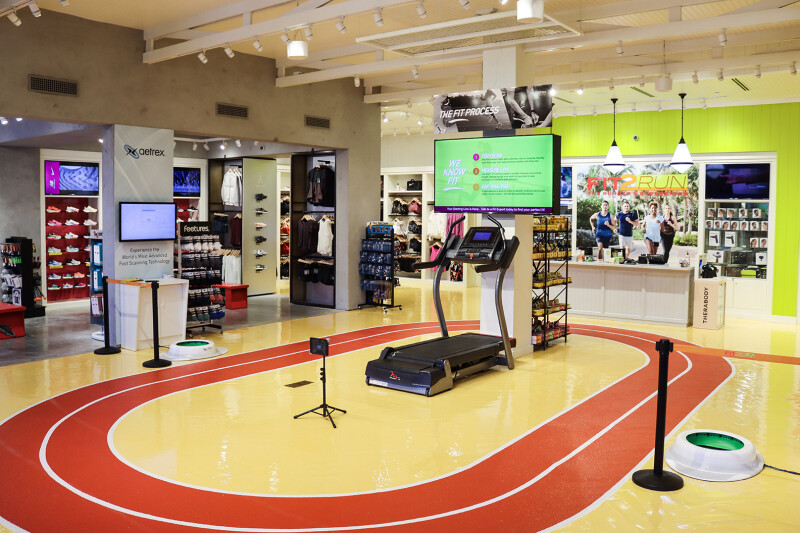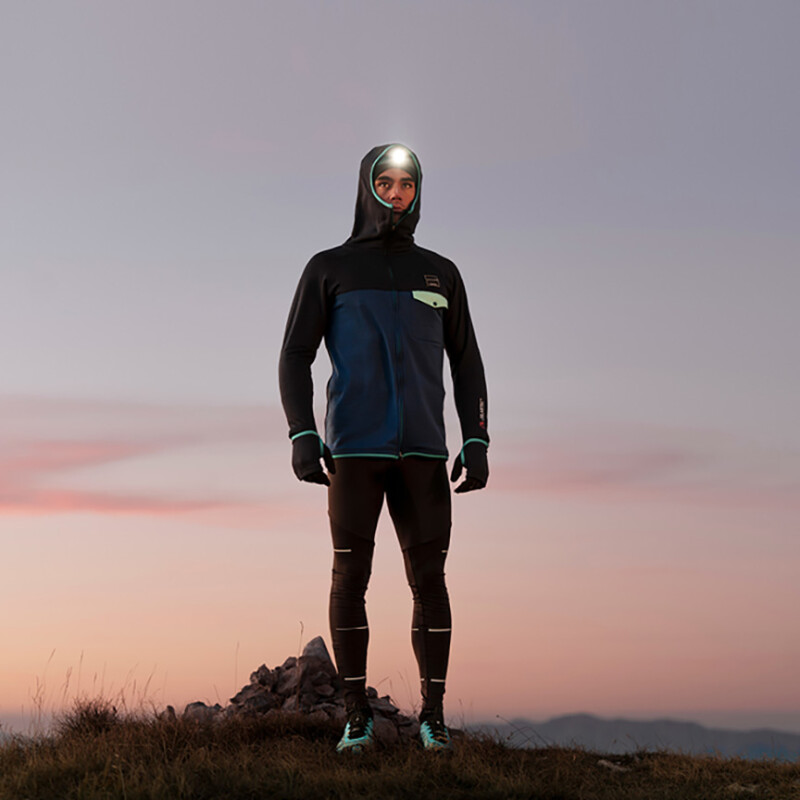The Elevator Pitch … All Point Retail is a retail commerce/IT services firm that integrates retail systems, processes, workflows and management— from POS to inventory to analytics—under one roof, all managed by a dedicated All Point customer success team. By unleashing the potential of unified commerce for any retailer—and centered around one integrated IT platform and bolstered by its consulting, design, development, implementation and support services—All Point customizes solutions to help retailers address their IT challenges from “all points.”
The Why … “Omnichannel has been a buzzword for close to a decade, yet few retailers have truly cracked the code on making it not just a fulfillment effort, but a 360-degree customer reality,” explains CEO Sean Quinn, who points out that in order to make it real, all systems must work together with one common, forward-facing vision for their customers. “All points of commerce must have the same look, feel and symbiotic experience, yet operate contextually for the touchpoint,” he adds. “When the pandemic hit, this became an imperative, so we set out to make it turnkey, allowing retailers to pivot elastically across all platforms.”
Benefits To Retailers … All Point focuses on the retail vertical. It designs a retailer’s technology platform to be flexible enough to meet their needs now, but also grow as they grow. There are three main components of its business:
- IT and Technology Support. This includes traditional network management, POS hardware, telephony, integrated video and in-store business intelligence. It is supported by the company’s own in-house team, seven days a week, during the typical 18-hour retail day.
- Retail Business Process and Consulting. All Point has executives from all walks of retail that assist in the design and implementation of the software platforms, from standard Retail Management systems (POS/OMS/CRM) to all other channels, including e-commerce, ERP, WMS, Mobile and Pop-ups. “We hold their hands through the migration from their old systems to one unified platform,” Quinn explains.
- Integration and Development. All Point has put together its own in-house U.S.-based development team to handle and support client integrations internally. “We believe this is the only way we can truly deliver an elastic integrated platform to our clients so that their customers can have a synchronized brand experience,” Quinn adds.
The Pandemic Impact … “Those that were already on an integrated elastic platform thrived through the pandemic, as they were able to accommodate the explosive need for web and mobile, as well as curbside pickup, dropship and endless aisle, with very little heartburn,” says Quinn. “During the pandemic, these requirements were necessary to stay alive while stores were dark, so it was an imperative to pivot quickly.” But for those that weren’t ready with an integrated infrastructure, the pandemic cemented their need to get there, sparking them to pursue those areas that they were still waiting on, which is where a lot of run specialty retailers are now. “The customer expects a similar experience from their favorite retailer no matter where they engage with them and the pandemic made this abundantly clear,” he adds. “It’s a new imperative to support this.”
Looking Forward … “Customers now want the convenience of web and mobile Ð along with the personalized engagement they expect everywhere Ð in the in-store experience,” says Quinn, pointing out that events and pop-ups are also here to stay. “It makes sense, as COVID forced the entire industry to service customers via entirely new retail formats, and many are now here to stay. It’s about meeting where they live, traverse and seek to shop at, which is no longer just the store.”
Tech Advice for Run Retailers … Quinn advises retailers to not be hesitant because they think it’s expensive to change or that they’ve invested so much into their legacy systems that it’s better to bolt onto it or band aid their innovations. “Our business model eliminates both of these barriers to change with no upfront capex, making it easier to sell it through to the C-suite,” he says. “We’re a partner that
can handle all aspects of this kind of transition and actually walk with a client regarding how to best use their technology, often times at a cost equal to or less than they used to spend on systems that didn’t work.”
The Future … All Point is evaluating retail technologies and designing next-level technologies. It recently finished a 12-month project on a fully integrated video solution with POS where a client’s existing video system can now provide true real-time business analytics utilizing POS transactions coupled with video metrics and analytics. It also provides an intuitive dashboard that a manager can analyze every morning. All Point has secured orders for more than 100 of these systems from its current client base just in the first 90 days. The ROI is tied directly to their ATV and UPT and is a revenue-generating force multiplier for retail clients, as well as a tool for catching fraud or improper procedures.
ALL POINT CASE HISTORY
How Fit2Run Proved a New Commerce Model During a Pandemic
Very few retailers came out of COVID on the upside, particularly small, localized specialty retail. But with the right platform and a Managed Retail Services partner, Fit2Run made it happen.
No one saw a pandemic coming, but Fit2Run kept pace with the constant set of new requirements it brought on, then ended up miles ahead by putting a new retail services model called Managed Retail Services to its litmus test.
The idea of “unified commerce” is not new, but it’s been more buzzword than business imperative. Put simply, it commits to the customer experience as the top corporate imperative and uses one single commerce platform to deliver it consistently from all points. Every time a customer reaches out to the retailer from any place at any time, one central unified platform supports them.
Further, it operates in real time and works fluidly, both offline and online. This means all data is streaming into one platform, making it easier to understand customers more intimately while also serving them personally, predictively and proactively.
When COVID hit, Fit2Run was celebrating a series of notable wins regarding its physical store experience. Years of commitment towards innovation was paying off. What they had not focused on, however, was their e-commerce experience. Fit2Run did have an integrated e-com platform, but traction from its web efforts was slow.
When the edict was handed down to close all stores, things changed in a matter of days. The Fit2Run website was hit with a 20-times influx of customer traffic and revenue, but since they had invested in a unified commerce platform with All Point Retail, they were ready. The platform that Fit2Run runs on integrates systems, processes, workflows and management – from POS to inventory to analytics – in an elastic manner, so it was seamless to add a few features and functions to support a wild increase in online customer demand. Among the steps Fit2Run took:
- Integrated the phone system, which allowed traffic to be immediately routed from stores to e-com and have managers take orders with reduced staff but increased volume.
- An integrated texting/messaging platform was introduced into the ecosystem, which allowed for native Google integration for text communications with customers that answered customer questions, took orders and facilitated an immediate shift to curbside pick-up and delivery when the stores reopened with limited capacity.
- User experience for the customer was the same highly personalized, industry knowledgeable interaction F2R customers were used to, but they were able to use whichever platform suited them at the time.
- Existing EDI capabilities between F2R and many of their vendors allowed them to continue to fulfill the increased volume in a timely manner (even though stores and warehouses were closed) by leveraging direct ship from inventory reserved for them around the country by their vendor partners — again, all within the same integrated platform.






